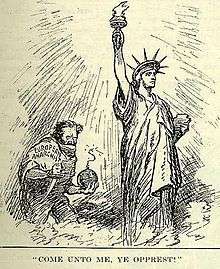
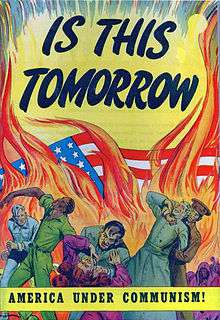
The success of business propaganda in persuading us, for so long, that we are free from propaganda is one of the most significant propaganda achievements of the twentieth century. ~ Alex Carey

In a way, the world-view of the Party imposed itself most successfully on people incapable of understanding it. They could be made to accept the most flagrant violations of reality, because they never fully grasped the enormity of what was demanded of them, and were not sufficiently interested in public events to notice what was happening. ~ George Orwell
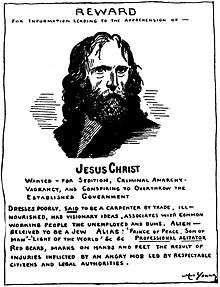
Manipulations of opinion, insofar as they are inspired by well-defined interests, have limited goals; their effect, however, if they happen to touch upon an issue of authentic concern, is no longer subject to their control and may easily produce consequences they never foresaw or intended. ~ Hannah Arendt
Propaganda is presentation of information in ways which are not objective and aimed primarily at influencing an audience or furthering an agenda, often by presenting facts selectively to encourage particular perceptions, and to produce emotional rather than a rational responses to the circumstances. Propaganda is often associated with material prepared by national governments, but activist groups, companies, and religious organizations also produce propaganda.
A
- Manipulations of opinion, insofar as they are inspired by well-defined interests, have limited goals; their effect, however, if they happen to touch upon an issue of authentic concern, is no longer subject to their control and may easily produce consequences they never foresaw or intended.
- Hannah Arendt, Eichmann in Jerusalem (1963), Postscript to the revised (1965) edition
B

If we understand the mechanism and motives of the group mind, is it not possible to control and regiment the masses according to our will without their knowing about it? The recent practice of propaganda has proved that it is possible, at least up to a certain point and within certain limits. ~ Edward Bernays
- If we understand the mechanism and motives of the group mind, is it not possible to control and regiment the masses according to our will without their knowing about it? The recent practice of propaganda has proved that it is possible, at least up to a certain point and within certain limits.
- Edward Bernays, Propaganda (1928)
- The conscious and intelligent manipulation of the organized habits and opinions of the masses is an important element in democratic society. Those who manipulate this unseen mechanism of society constitute an invisible government which is the true ruling power of our country.
- Edward Bernays, Propaganda (1928), p. 10
- We are governed, our minds are molded, our tastes formed, our ideas suggested, largely by men we have never heard of. ... In almost every act of our daily lives, whether in the sphere of politics or business, in our social conduct or our ethical thinking, we are dominated by the relatively small number of persons ... who understand the mental processes and social patterns of the masses. It is they who pull the wires which control the public mind.
- Edward Bernays, Propaganda (1928), p. 10
- No serious sociologist any longer believes that the voice of the people expresses any divine or specially wise and lofty idea. The voice of the people expresses the mind of the people, and that mind is made up for it by the group leaders in whom it believes and by those persons who understand the manipulation of public opinion. It is composed of inherited prejudices and symbols and clichés and verbal formulas supplied to them by the leaders.
- Edward Bernays, Propaganda (1928)
- Propaganda is the executive arm of the invisible government.
- Edward Bernays, Propaganda (1928)
- The engineering of consent is the very essence of the democratic process, the freedom to persuade and suggest.
- Edward Bernays, "The Engineering of Consent", Annals of the American Academy of Political and Social Science No. 250 (March 1947)
- Goebbels ... was using my book Crystallizing Public Opinion as a basis for his destructive campaign against the Jews of Germany. This shocked me.
- Edward Bernays, Biography of an Idea: Memoirs of Public Relations Counsel (1965)
C

The twentieth century has been characterized by three developments of great political importance: the growth of democracy, the growth of corporate power, and the growth of corporate propaganda as a means of protecting corporate power against democracy. ~ Alex Carey

One reason that propaganda often works better on the educated than on the uneducated is that educated people read more, so they receive more propaganda. Another is that they have jobs in management, media, and academia and therefore work in some capacity as agents of the propaganda system--and they believe what the system expects them to believe. ~Noam Chomsky
- The twentieth century has been characterized by three developments of great political importance: the growth of democracy, the growth of corporate power, and the growth of corporate propaganda as a means of protecting corporate power against democracy.
- Alex Carey, Taking the Risk Out of Democracy: Corporate Propaganda versus Freedom and Liberty (1995), p. 18
- The success of business propaganda in persuading us, for so long, that we are free from propaganda is one of the most significant propaganda achievements of the twentieth century.
- Alex Carey, Taking the Risk Out of Democracy: Corporate Propaganda versus Freedom and Liberty (1995), p. 21
- One reason that propaganda often works better on the educated than on the uneducated is that educated people read more, so they receive more propaganda. Another is that they have jobs in management, media, and academia and therefore work in some capacity as agents of the propaganda system--and they believe what the system expects them to believe. By and large, they're part of the privileged elite, and share the interests and perceptions of those in power.
- Noam Chomsky in Propaganda, American-style, ZPub (1987)
- For those who stubbornly seek freedom around the world, there can be no more urgent task than to come to understand the mechanisms and practices of indoctrination. These are easy to perceive in the totalitarian societies, much less so in the propaganda system to which we are subjected and in which all too often we serve as unwilling or unwitting instruments.
- Noam Chomsky in Propaganda, American-style, ZPub (1987)
- [In] democratic societies … the state can't control behavior by force. It can to some extent, but it's much more limited in its capacity to control by force. Therefore, it has to control what you think. … One of the ways you control what people think is by creating the illusion that there's a debate going on, but making sure that that debate stays within very narrow margins. Namely, you have to make sure that both sides in the debate accept certain assumptions, and those assumptions turn out to be the propaganda system. As long as everyone accepts the propaganda system, then you can have a debate.
- The Vietnam War is a classic example of America's propaganda system. In the mainstream media--the New York Times, CBS, and so on-- there was a lively debate about the war. It was between people called "doves" and people called "hawks." The hawks said, "If we keep at it we can win." The doves said, "Even if we keep at it, it would probably be too costly for use, and besides, maybe we're killing too many people." Both sides agreed on one thing. We had a right to carry out aggression against South Vietnam. Doves and hawks alike refused to admit that aggression was taking place. They both called our military presence in Southeast Asia the defense of South Vietnam, substituting "defense" for "aggression" in the standard Orwellian manner.
- Noam Chomsky in Propaganda, American-style, ZPub (1987)
- The media want to maintain their intimate relation to state power. They want to get leaks, they want to get invited to the press conferences. They want to rub shoulders with the Secretary of State, all that kind of business. To do that, you've got to play the game, and playing the game means telling their lies, serving as their disinformation apparatus.
- Propaganda is to a democracy what the bludgeon is to a totalitarian state.
- Noam Chomsky, Interview on WBAI, January 1992
- The real purpose of state secrecy is to enable governments to establish their own self-interested and often mendacious version of the truth by the careful selection of “facts” to be passed on to the public. They feel enraged by any revelation of what they really know, or by any alternative source of information. Such threats to their control of the news agenda must be suppressed where possible and, where not, those responsible must be pursued and punished.
Revealing important information about the Yemen war – in which at least 70,000 people have been killed – is the reason why the US government is persecuting both Assange and Zikry.- Patrick Cockburn, Why the US is Persecuting Assange? CounterPunch (4 June 2019)
E
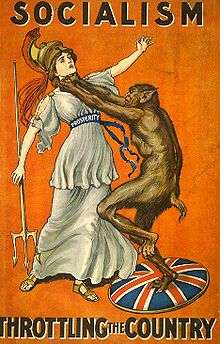
Through the myth it creates, propaganda imposes a complete range of intuitive knowledge, susceptible of only one interpretation, unique and one-sided, and precluding any divergence. ~ Jacques Ellul
- Propaganda tries to surround man by all possible routes in the realm of feelings as well as ideas, by playing on his will or on his needs, through his conscious and his unconscious, assailing him in both his private and his public life. It furnishes him with a complete system for explaining the world, and provides immediate incentives to action. We are here in the presence of an organized myth that tries to take hold of the entire person. Through the myth it creates, propaganda imposes a complete range of intuitive knowledge, susceptible of only one interpretation, unique and one-sided, and precluding any divergence. This myth becomes so powerful that it invades every arena of consciousness, leaving no faculty or motivation intact. It stimulates in the individual a feeling of exclusiveness, and produces a biased attitude.
- Jacques Ellul, in Propaganda: The Formation of Men's Attitudes (1962), as translated by Konrad Kellen & Jean Lerner (1965)
- Modern propaganda is based on scientific analyses of psychology and sociology. Step by step, the propagandist builds his techniques on the basis of his knowledge of man, his tendencies, his desires, his needs, his psychic mechanisms, his conditioning — and as much on social psychology as on depth psychology. He shapes his procedures on the basis of our knowledge of groups and their laws of formation and dissolution, of mass influences, and of environmental limitations. Without the scientific research of modern psychology and sociology there would be no propaganda, or rather we still would be in the primitive stages of propaganda that existed in the time of Pericles or Augustus.
- Jacques Ellul, in Propaganda: The Formation of Men's Attitudes (1962), as translated by Konrad Kellen & Jean Lerner (1965), p. 4
- The most favorable moment to seize a man and influence him is when he is alone in the mass. It is at this point that propaganda can be most effective.
- Jacques Ellul, in Propaganda: The Formation of Men's Attitudes (1962), as translated by Konrad Kellen & Jean Lerner (1965), p. 9
- Propaganda does not aim to elevate man, but to make him serve.
- Jacques Ellul, in Propaganda: The Formation of Men's Attitudes (1962), as translated by Konrad Kellen & Jean Lerner (1965), p. 38
- Hate, hunger, and pride make better levers of propaganda than do love or impartiality.
- Jacques Ellul, in Propaganda: The Formation of Men's Attitudes (1962), as translated by Konrad Kellen & Jean Lerner (1965), p. 38
- We can now advance a definition of propaganda — not an exhaustive definition, unique and exclusive of all others, but at least a partial one: Propaganda is a set of methods employed by an organized group that wants to bring about the active or passive participation in its actions of a mass of individuals, psychologically unified through psychological manipulations and incorporated in an organization.
- Jacques Ellul, in Propaganda: The Formation of Men's Attitudes (1962), as translated by Konrad Kellen & Jean Lerner (1965), p. 61
- There remains the problem of Goebbels' reputation. He wore the title of Big Liar (bestowed by Anglo-Saxon propaganda) and yet he never stopped battling for propaganda to be as accurate as possible. He preferred being cynical and brutal to being caught in a lie. He used to say: "Everybody must know what the situation is." He was always the first to announce disastrous events or difficult situations, without hiding anything. The result was a general belief between 1939 and 1942 that German communiqués not only were more concise, clearer and less cluttered, but were more truthful than Allied communiqués (American and neutral opinion) — and, furthermore, that the Germans published all the news two or three days before the Allies. All this is so true that pinning the title of Big Liar on Goebbels must be considered quite a propaganda success.
- Jacques Ellul, "The Characteristics of Propaganda" in Readings in Propaganda and Persuasion: New and Classic Essays edited by Garth S. Jowett and Victoria O'Donnell, (SAGE, 2006) p. 48, note 47
F
G
- Every major U.S. war of the last several decades has begun the same way: the U.S. government fabricates an inflammatory, emotionally provocative lie which large U.S. media outlets uncritically treat as truth while refusing at air questioning or dissent, thus inflaming primal anger against the country the U.S. wants to attack...This was exactly the tactic used on February 23, when the narrative shifted radically in favor of those U.S. officials who want regime change operations in Venezuela... they vehemently stated that the trucks were set on fire, on purpose, by President Nicolas Maduro’s forces.
- That lie – supported by incredibly powerful video images – changed everything. Ever since, that Maduro burned trucks filled with humanitarian aid was repeated over and over as proven fact on U.S. news outlets. Immediately after it was claimed, politicians...U.S. news stars and think tank luminaries...took a leading role in beating the war drums.
- The U.S. media, by design, does not permit dissent on U.S. foreign policy, particularly when it comes to false claims about U.S. adversaries. That’s why skeptics of U.S. regime change in Venezuela, or dissenters on the prevailing orthodoxies about Russia, have largely been disappeared from mainstream media outlets, just as they were in 2002 and 2003. That’s not because U.S. media stars are ordered to do this. They don’t need to be ordered. They know propaganda is their job...
H
Propaganda must be limited to a few simple themes and these must be represented again and again. Here, as in innumerable other cases, perseverance is the first and most important condition of success. ~ Adolf Hitler
.jpg)
The propagandist's purpose is to make one set of people forget that certain other sets of people are human. ~ Aldous Huxley
- One of the deceptive clichés of Western accounts of post World War II history is that NATO was constructed as a defensive arrangement to block the threat of a Soviet attack on Western Europe. This is false. It is true that Western propaganda played up the Soviet menace, but many key U.S. and Western European statesmen recognized that a Soviet invasion was not a real threat. The Soviet Union had been devastated, and while in possession of a large army it was exhausted and needed time for recuperation. The United States was riding high, the war had revitalized its economy, it suffered no war damage, and it had the atomic bomb in its arsenal, which it had displayed to the Soviet Union by killing a quarter of a million Japanese civilians at Hiroshima and Nagasaki. Hitting the Soviet Union before it recovered or had atomic weapons was discussed in Washington, even if rejected in favor of “containment,” economic warfare, and other forms of destabilization. NSC 68, dated April 1950, while decrying the great Soviet menace, explicitly called for a program of destabilization aimed at regime change in that country, finally achieved in 1991...
In reality, NATO, as an aggressive global arm of U.S. and other local affiliated imperialisms, poses a serious threat to global peace and security. It is about to celebrate its 60th anniversary, and while it should have been liquidated back in 1991, it has instead expanded, taking on a new and threatening role traced out in its 1999 Strategic Concept and enjoying a frighteningly malignant growth.- Edward S. Herman NATO: the Imperial Pitbull, Global Research, (23 January 2009)
- It is enlightening to see how pugnacious the U.S. establishment...has been in dealing with the Ukraine crisis. The crisis arguably began when the Yanukovich government rejected an EU bailout program in favor of one offered by Russia. The mainstream media (MSM) have virtually suppressed the fact that the EU proposal was not only less generous than the one offered by Russia, but that, whereas the Russian plan did not preclude further Ukrainian deals with the EU, the EU plan would have required a cut-off of further Russian arrangements. And whereas the Russian deal had no military clauses, that of the EU required that Ukraine affiliate with NATO. Insofar as the MSM dealt with this set of offers, they not only suppressed the exclusionary and militarized character of the EU offer, they tended to view the Russian deal as an improper use of economic leverage, “bludgeoning,” but the EU proposal was “constructive and reasonable” (Ed., NYT, November 20, 2014). Double standards seem to be fully internalized within the U.S. establishment. The protests that ensued in Ukraine were surely based in part on real grievances against a corrupt government, but they were also pushed along by right-wing groups and by U.S. and allied encouragement and support that increasingly had an anti-Russian and pro-accelerated regime change flavor.
- Edward S. Herman in War is Our Business and Business Looks Good, Z Magazine (28 June 2014)
- The sniper killings of police and protesters in Maidan on February 21, 2014 brought the crisis to a new head. This violence overlapped with, and eventually terminated, a negotiated settlement of the struggle brokered by EU members that would have ended the violence, created an interim government, and required elections by December. The accelerated violence ended this transitional plan, which was replaced by a coup takeover along with the forced flight of Victor Yanukovich. There is credible evidence that the sniper shootings of both protesters and police were carried out by a segment of the protesters in a false-flag operation that worked exceedingly well, “government” violence serving as one ground for the ouster of Yanukovich. Most telling was the intercepted phone message between Estonia’s Minister of Foreign Affairs, Urmas Paet, and EU Foreign Policy chief Catherine Upton, in which Paet regretfully reported compelling evidence that the shots killing both police and protesters came from a segment of the protesters. This account was almost entirely suppressed in the MSM... There is also every reason to believe that the coup and establishment of a right-wing and anti-Russian government were encouraged and actively supported by U.S. officials.
- Edward S. Herman in War is Our Business and Business Looks Good, Z Magazine (28 June 2014)
- What is the propaganda model and how does it work? The crucial structural factors derive from the fact that the dominant media are firmly imbedded in the market system. They are profit-seeking businesses, owned by very wealthy people (or other companies); they are funded largely by advertisers who are also profit-seeking entities, and who want their ads to appear in a supportive selling environment. The media are also dependent on government and major business firms as information sources, and both efficiency and political considerations, and frequently overlapping interests, cause a certain degree of solidarity to prevail among the government, major media, and other corporate businesses. Government and large non-media business firms are also best positioned (and sufficiently wealthy) to be able to pressure the media with threats of withdrawal of advertising or TV licenses, libel suits, and other direct and indirect modes of attack. The media are also constrained by the dominant ideology, which heavily featured anticommunism before and during the Cold War era, and was mobilized often to prevent the media from criticizing attacks on small states labelled communist.
- Edward S. Herman in The Propaganda Model Revisited, Monthly Review (1 January 2018)
- The model does suggest that the mainstream media, as elite institutions, commonly frame news and allow debate only within the parameters of elite interests; and that where the elite is really concerned and unified, and/or where ordinary citizens are not aware of their own stake in an issue or are immobilized by effective propaganda, the media will serve elite interests uncompromisingly... Many liberals and a number of academic media analysts of the left did not like the propaganda model. Some of them found repugnant a wholesale condemnation of a system in which they played a respected role; for them it is a basically sound system, its inequalities of access regrettable but tolerable, its pluralism and competition effectively responding to consumer demands.
- Edward S. Herman in The Propaganda Model Revisited, Monthly Review (1 January 2018)
- In retrospect ... it is quite possible that nothing we could have done would have prevented our being labelled conspiracy theorists, rigid determinists, and deniers of the possibility that people can resist (even as we called for resistance). The propaganda model still seems a very workable framework for analyzing and understanding the mainstream media—perhaps even more so than in 1988. As noted earlier in reference to Central America, it often surpasses expectations of media subservience to government propaganda. And we are still waiting for our critics to provide a better model.
- Edward S. Herman in The Propaganda Model Revisited, Monthly Review (1 January 2018)
- But it remained for the Jews, with their unqualified capacity for falsehood, and their fighting comrades, the Marxists … By placing responsibility for the loss of the world war on the shoulders of Ludendorff they took away the weapon of moral right from the only adversary dangerous enough to be likely to succeed in bringing the betrayers of the Fatherland to Justice. All this was inspired by the principle - which is quite true in itself - that in the big lie there is always a certain force of credibility; because the broad masses of a nation are always more easily corrupted in the deeper strata of their emotional nature than consciously or voluntarily; and thus in the primitive simplicity of their minds they more readily fall victims to the big lie than the small lie, since they themselves often tell small lies in little matters but would be ashamed to resort to large-scale falsehoods. It would never come into their heads to fabricate colossal untruths, and they would not believe that others could have the impudence to distort the truth so infamously.
- Adolf Hitler, in Mein Kampf (1925)
- No matter what an amount of talent employed in the organization of propaganda, it will have no result if due account is not taken of these fundamental principles. Propaganda must be limited to a few simple themes and these must be represented again and again. Here, as in innumerable other cases, perseverance is the first and most important condition of success.
- Variant: No amount of genius spent on the creation of propaganda will lead to success if a fundamental principle is not forever kept in mind. Propaganda must confine itself to very few points, and repeat them endlessly. Here, as with so many things in this world, persistence is the first and foremost condition of success.
- Adolf Hitler, in Mein Kampf (1925) ; translated to English by James Murphy (February 1939)
- We tend today to exaggerate the effectiveness of persuasion as a means of inculcating opinion and shaping behavior. ...Actually the fabulous effects ascribed to propaganda have no greater foundation in fact than the fall of the walls of Jericho ascribed to the blast of Joshua's trumpets.
- Eric Hoffer, The True Beliver (1951) Ch.14 Unifying Agents, §83
- All war propaganda consists, in the last resort, in substituting diabolical abstractions for human beings. Similarly,those who defend war have invented a pleasant sounding vocabulary of abstractions in which to describe the process of mass murder.
- Aldous Huxley, in "Pacifism and Philosophy" (1936)
- The propagandist's purpose is to make one set of people forget that certain other sets of people are human.
- Aldous Huxley, The Olive Tree (1937). New York: Harper & Brothers, p. 101
K
- The “Conqueror from Berlin,” as he has named himself, has completely conquered Germany. And not only that. Unfortunately, many, all too many Germans living abroad, also have fallen for the cunning propaganda.
- Friedrich Kellner, My Opposition (14 October 1939)
L
.jpg)
What each man does is based not on direct and certain knowledge, but on pictures made by himself or given to him. ~ Walter Lippmann
- What each man does is based not on direct and certain knowledge, but on pictures made by himself or given to him...The very men who most loudly proclaim their “materialism” and their contempt for “ideologues,” the Marxian communists, place their entire hope on what? On the formation by propaganda of a class-conscious group. But what is propaganda, if not the effort to alter the picture to which men respond, to substitute one social pattern for another?
- Walter Lippmann Public Opinion (1922)
- Without some form of censorship, propaganda in the strict sense of the word is impossible. In order to conduct a propaganda there must be some barrier between the public and the event. Access to the real environment must be limited, before anyone can create a pseudo-environment that he thinks wise or desirable. ...It is often very illuminating, therefore, to ask yourself how you got at the facts on which you base your opinion. Who actually saw, heard, felt, counted, named the thing, about which you have an opinion? Was it the man who told you, or the man who told him, or someone still further removed? And how much was he permitted to see?
- Walter Lippmann Public Opinion (1922)
- Photographs have the kind of authority over imagination to-day, which the printed word had yesterday, and the spoken word before that. They seem utterly real. They come, we imagine, directly to us without human meddling, and they are the most effortless food for the mind conceivable.
- Walter Lippmann Public Opinion (1922)
M
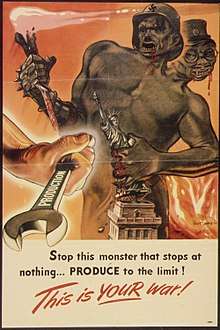
The educator aims at a slow process of development; the propagandist, at quick results. The educator tries to tell people how to think; the propagandist, what to think. ~ Everett Dean Martin
- Propaganda is defined as the manipulation of the public to the end of securing some specific action.
- Everett Dean Martin, Are We Victims of Propaganda, Our Invisible Masters: A Debate with Edward Bernays (1929)
- Propaganda is making puppets out of us. We are moved by hidden strings which the propagandist manipulates.
- Everett Dean Martin, Are We Victims of Propaganda, Our Invisible Masters: A Debate with Edward Bernays (1929)
- Its aim is to “put something over” on people, with or without their knowledge or consent… neither truth nor the basic values of civilization get a fair hearing.
- Everett Dean Martin, Are We Victims of Propaganda, Our Invisible Masters: A Debate with Edward Bernays (1929)
- Prejudice and the well-known weaknesses of human nature are to be exploited and thus encouraged.
- Everett Dean Martin, Are We Victims of Propaganda, Our Invisible Masters: A Debate with Edward Bernays (1929)
- It must be borne in mind that everything the propagandist does or says is for effect — most commonly the effect on fools. The public wants not truth but a show?
- Everett Dean Martin, Are We Victims of Propaganda, Our Invisible Masters: A Debate with Edward Bernays (1929)
- So long as the public may be manipulated by misrepresentation and by appeal to ignorance and prejudice, it is the public’s own fault if the “knowing ones” make use of questionable methods.
- Everett Dean Martin, Are We Victims of Propaganda, Our Invisible Masters: A Debate with Edward Bernays (1929)
- The evil effect of these attempts to manipulate the multitude by pampering its weaknesses — in return for material and other advantages to persons and for ends not disclosed — is clearly seen in various aspects of our common life. In politics such effect have long been deplorable.
- Everett Dean Martin, Are We Victims of Propaganda, Our Invisible Masters: A Debate with Edward Bernays (1929)
- It is the trivial, the irrelevant, the sensational, the appeal to obsolete bigotry which naturally give it greatest publicity. In such publicity it becomes a mere vulgar caricature of itself.
- Everett Dean Martin, Are We Victims of Propaganda, Our Invisible Masters: A Debate with Edward Bernays (1929)
- One of the serious results of propaganda is that it has caused the public to think that education and propaganda are the same thing, and thus to make an ignorant multitude believe it is being educated when it is only being manipulated. Education aims at independence of judgement. Propaganda offers ready-made opinions for the unthinking herd.
- Everett Dean Martin, Are We Victims of Propaganda, Our Invisible Masters: A Debate with Edward Bernays (1929)
- The educator aims at a slow process of development; the propagandist, at quick results. The educator tries to tell people how to think; the propagandist, what to think. The educator strives to develop individual responsibility; the propagandist, mass effects. The educator wants thinking; the propagandist, action. The educator fails unless he achieves an open mind; the propagandist, unless he achieves a closed mind.
- Everett Dean Martin, Are We Victims of Propaganda, Our Invisible Masters: A Debate with Edward Bernays (1929)
- Frankly, Wonder Woman is psychological propaganda for the new type of woman who, I believe, should rule the world.
- William Moulton Marston The Secret History of Wonder Woman, The Secret History of Wonder Woman (2014) by Jill Lepore
- The class which has the means of material production at its disposal, has control at the same time over the means of mental production.
- Karl Marx, The German Ideology (1846), p. 64
- When their propaganda lines up with their behavior in the real world it would be very foolhardy to ignore it... The worse the quality of the paper is, the more seriously you should take the propaganda printed on it because that poor-quality paper indicates its being distributed on a large scale...
- Brian Reynolds Myers, interview with the Reuters War College (April 2017)
O
- And if all others accepted the lie which the Party imposed -if all records told the same tale — then the lie passed into history and became truth. Who controls the past, ran the Party slogan, controls the future: who controls the present controls the past. And yet the past, though of its nature alterable, never had been altered. Whatever was true now was true from everlasting to everlasting. It was quite simple. All that was needed was an unending series of victories over your own memory. 'Reality control', they called it: in Newspeak, 'doublethink'.
- In principle the war effort is always so planned as to eat up any surplus that might exist after meeting the bare needs of the population.... chronic shortage of half the necessities... is deliberate policy to keep even the favored groups somewhere near the brink of hardship, because a general state of scarcity increases the importance of small privileges and thus magnifies the distinction between one group and another.
- War... not only accomplishes the necessary destruction, but accomplishes it in a psychologically acceptable way. In principle it would be quite simple to waste the surplus labour of the world... by digging holes and filling them up again, or even by producing vast quantities of goods and then setting fire to them. But this would provide only the economic and not the emotional basis for a hierarchical society. ...In the long run, a hierarchical society was only possible on a basis of poverty and ignorance.
- The new aristocracy was made up for the most part of bureaucrats, scientists, technicians, trade-union organizers, publicity experts, sociologists, teachers, journalists, and professional politicians... shaped and brought together by the barren world of monopoly industry and centralized government... intent on crushing opposition.
- By comparison with that existing today, all the tyrannies of the past were half-hearted and inefficient... in the past no government had the power to keep its citizens under constant surveillance. The invention of print, however, made it easier to manipulate public opinion, and the film and the radio carried the process further. With the development of television, Every citizen, or at least every citizen important enough to be worth watching, could be kept for twenty-four hours a day under the eyes of the police and in the sound of official propaganda, with all other channels of communication closed. The possibility of enforcing not only complete obedience to the will of the State, but complete uniformity of opinion on all subjects, now existed for the first time.
S
- When terrorists attack, they’re terrorizing. When we attack, we’re retaliating. When they respond to our retaliation with further attacks, they’re terrorizing again. When we respond with further attacks, we’re retaliating again.
When people decry civilian deaths caused by the U.S government, they're aiding propaganda efforts. In sharp contrast, when civilian deaths are caused by bombers who hate America, the perpetrators are evil and those deaths are tragedies.
When they put bombs in cars and kill people, they're uncivilized killers. When we put bombs on missiles and kill people, we're upholding civilized values. When they kill, they're terrorists. When we kill, we're striking against terror.- Norman Solomon, "Orwellian Logic 101 — A Few Simple Lessons", in FAIR (27 August 1998)
- Orwell's 1984 explained that "the special function of certain Newspeak words … was not so much to express meanings as to destroy them." During the week after U.S. missiles hit sites in Sudan and Afghanistan, some Americans seemed uncomfortable. A vocal minority even voiced opposition. But approval was routine among those who had learned a few easy Orwellian lessons... At all times, Americans must be kept fully informed about who to hate and fear... No matter how many times they’ve lied in the past, U.S. officials are credible in the present. When they... [say] the bombed pharmaceutical factory in Khartoum was making ingredients for nerve gas, that should be good enough for us.... Might doesn’t make right — except in the real world, when it’s American might. Only someone of dubious political orientation would split hairs about international law.
- Norman Solomon in Orwellian Logic 101 — A Few Simple Lessons, FAIR (27 August 1998)
- Propaganda is not French, it is not civilized to want other people to believe what you believe because the essence of being civilised is to possess yourself as you are, and if you possess yourself as you are you of course cannot possess any one else, it is not your business.
- Gertrude Stein, in Paris France (1940), p. 56
See also
External links
This article is issued from
Wikiquote.
The text is licensed under Creative
Commons - Attribution - Sharealike.
Additional terms may apply for the media files.